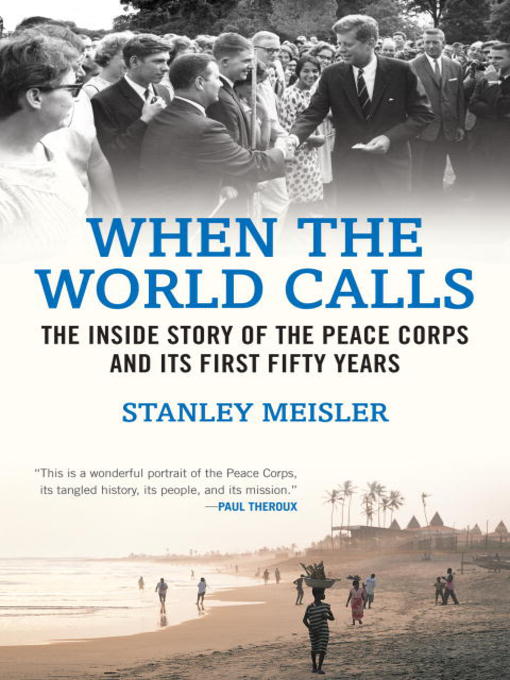A complete and revealing history of the Peace Corps—in time for its fiftieth anniversary
When the World Calls is the first complete and balanced look at the Peace Corps's first fifty years. Stanley Meisler's engaging narrative exposes Washington infighting, presidential influence, and the Volunteers' unique struggles abroad. He deftly unpacks the complicated history with sharp analysis and memorable anecdotes, taking readers on a global trek starting with the historic first contingent of Volunteers to Ghana on August 30, 1961.
- Available now
- New E-book Additions
- New kids and teen additions
- Most popular
- Best of the Library Writers Project
- Black Pacific Northwest Collection
- Manga from VIZ Media
- Ukrainian e-books
- See all ebooks collections
- New Audiobook Additions
- Most popular
- Available now
- New kids and teen additions
- LGBTQ Young Adult Audiobooks
- Family-Friendly Audiobooks 🎧
- Always Available Audiobooks
- Audiobooks Read by Celebrities
- See all audiobooks collections



